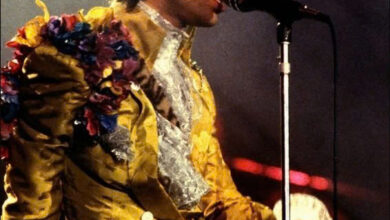The Hidden Story Behind Dolly Parton’s “Jolene”: More Than Just a Catchy Tune
OPINION: This article may contain commentary which reflects the author's opinion.
When you think of Dolly Parton, one of the first songs that likely comes to mind is “Jolene.” This timeless anthem has transcended generations, captivating listeners with its haunting melody and heartfelt lyrics. But beyond its catchy tune and memorable chorus, there’s a deeper story that not everyone knows. What does “Jolene” really mean, and why does this song continue to resonate with audiences decades after its release?
Let’s dive into the untold story behind one of Dolly’s most iconic songs.
The Origin of “Jolene”
Written and released in 1973, “Jolene” tells the story of a woman pleading with another woman not to take her man. The song’s vivid imagery—”with flaming locks of auburn hair” and eyes “green as envy”—paints a picture of a mesmerizing beauty, one capable of stealing away a lover with little effort.
But who is Jolene, really?
In a 2008 interview, Dolly revealed that the inspiration for the song came from two very different sources. First, a young fan named Jolene once approached Dolly for an autograph, and her name stuck with the singer. Second, Dolly’s husband, Carl Dean, had become friendly with a redheaded bank teller who, as Dolly has jokingly said, was “giving him a little more interest than he deserved.” The combination of these experiences sparked the creation of the song.
Jolene as a Symbol of Insecurity
On the surface, “Jolene” is a plea to a potential romantic rival, but its true power lies in its exploration of vulnerability. In many ways, Dolly’s lyrics reflect universal human emotions—fear, insecurity, and the need for validation. The narrator’s plea, “Please don’t take him just because you can,” is a powerful expression of the anxiety that comes with feeling inadequate in the face of competition.
What makes “Jolene” so relatable is that it taps into a common fear: the feeling that someone else may come along and outshine you. Whether in love, work, or friendship, many people have experienced moments of doubt when they wonder if someone might replace them.
Feminism and the Complexity of “Jolene”
Interestingly, while “Jolene” is often viewed as a song about romantic jealousy, it can also be interpreted as a subtle critique of the social pressures placed on women. In the song, the narrator acknowledges Jolene’s beauty and power, but she also recognizes her own sense of powerlessness. Instead of blaming her partner for his wandering eye, the narrator focuses on the other woman—reflecting a societal tendency to pit women against one another, rather than hold men accountable for their actions.
Despite this dynamic, Dolly’s delivery of the song is never accusatory or bitter. Instead, it’s laced with a sense of understanding and empathy, suggesting that the true villain in the story may not be Jolene at all, but the internalized insecurities we all face.
The Enduring Appeal of “Jolene”
What makes “Jolene” so timeless is its ability to resonate with listeners on multiple levels. It’s a song about heartache, but it’s also about the human experience—about feeling vulnerable, facing competition, and dealing with the complexities of love.
And let’s not forget the melody! The hypnotic guitar riff and Dolly’s crystalline voice elevate the song to a level that few others achieve. It’s no wonder that “Jolene” has been covered by artists across genres, from The White Stripes to Miley Cyrus, cementing its place as one of the greatest songs ever written.
Conclusion: A Song for the Ages
“Jolene” is more than just a catchy tune—it’s a piece of music that taps into the core of human emotion. Dolly Parton, with her unmatched ability to tell stories through song, crafted a timeless narrative that continues to resonate with audiences today. Whether you’ve felt the pang of jealousy, the fear of loss, or the weight of insecurity, “Jolene” speaks to something universal in all of us.
So, the next time you hear that iconic chorus—“Jolene, Jolene, Jolene, Jolene”—remember that this song is much more than it seems. It’s a testament to the complexity of love, the vulnerability of the human heart, and the brilliance of Dolly Parton as a storyteller.



